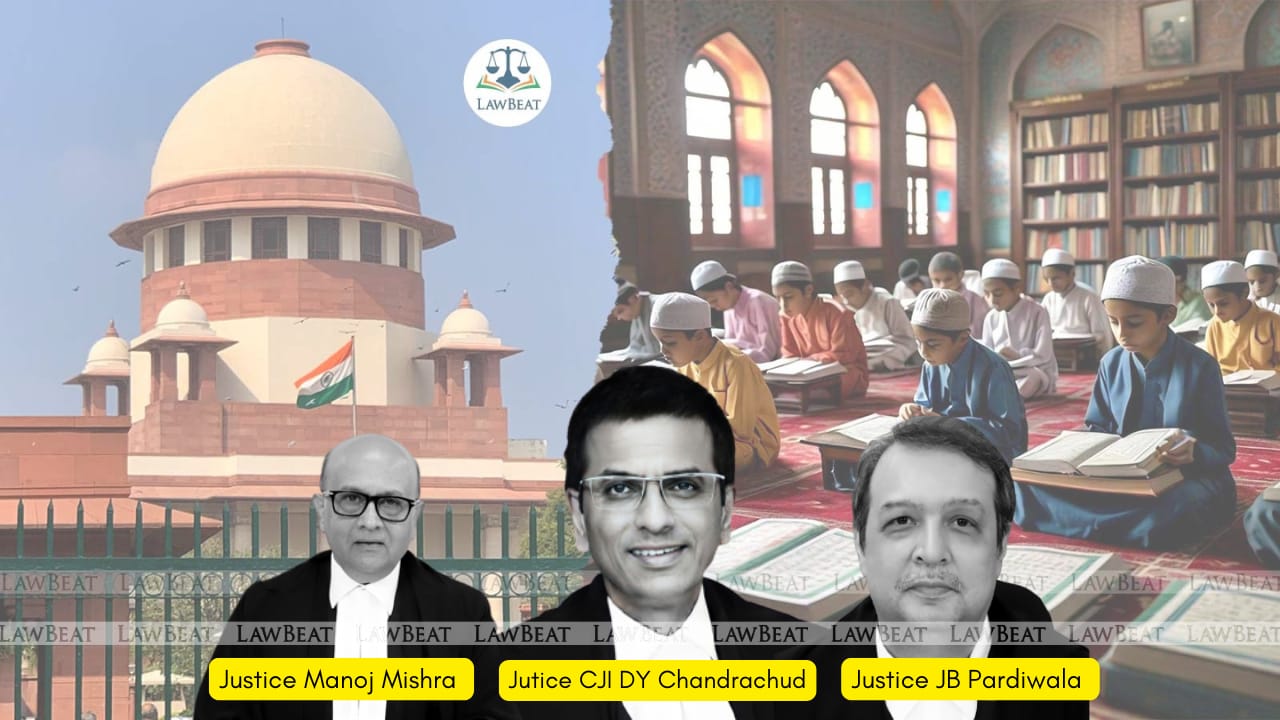UP Madarsa Act furthers substantive equality for minority community: Supreme Court

As per the Supreme Court, the Madarsa Act is consistent with the positive obligation of the State to ensure that students studying in recognised Madarsas attain a level of competency which will allow them to effectively participate in society and earn a living
The Supreme Court on Tuesday said that the Uttar Pradesh Board of Madarsa Education Act 2004 furthers substantive equality for the minority community.
Court has further observed that the Madarsa Act secures the interests of the minority community in Uttar Pradesh because: (i) it regulates the standard of education imparted by the recognised Madarsas; and (ii) it conducts examinations and confers certificates to students, allowing them the opportunity to pursue higher education.
Supreme Court's bench of CJI DY Chandrachud, Justice Pardiwala and Justice Manoj Misra has made this observation today while it upheld the constitutional validity of the Act of 2004 and has struck down the Allahabad High Court's decision striking down the state's legislation.
"The High Court erred in holding that a statute is bound to be struck down if it is violative of the basic structure. Invalidation of a statute on the grounds of violation of secularism has to be traced to express provisions of the Constitution. Further, the fact that the State legislature has established a Board to recognise and regulate Madarsa education is not violative of Article 14. The Madarsa Act furthers substantive equality...", the bench has held.
Noting that provisions of the Madarsa Act seek to “regulate” Madarsas, court has highlighted the distinction between “religious instruction” and “religious education”.
"While the Madarsas do impart religious instruction, their primary aim is education. Legislative entries must be given their widest meaning, and their ambit also extends to ancillary subjects which may be comprehended within the entry. The mere fact that the education which is sought to be regulated includes some religious teachings or instruction, does not automatically push the legislation outside the legislative competence of the state....", top court has observed.
Two weeks back, Supreme Court had reserved its judgment on the petition filed by one Anjum Kadari challenging the striking down of Uttar Pradesh Board of Madarsa Education Act 2004.
Looking at the salutary purpose of the Madrasa Act, the Supreme Court had earlier questioned if it was not in the national interest to recognize the Madrasas and regulate them accordingly.
Justice Pardiwala also questioned if it could be argued that all those students who decide to undertake education in these institutions it was detrimental to their interest and they were deprived.
Notably, State of Uttar Pradesh told the Supreme Court that the Allahabad High Court's decision to strike down the entire Uttar Pradesh Board of Madarsa Education Act 2004 was not correct.
Additional Solicitor General KM Nataraj, appearing for the state government, submitted that striking down of entire Act was not at all correct and only some of the provisions should have been stuck down if needed.
On October 21st, Supreme Court began hearing the SLP challenging Allahabad High Court’s judgement striking down the Uttar Pradesh Board of Madarsa Education Act 2004 as unconstitutional, for final disposal.
The Supreme Court in April this year, had stayed the judgment and issued notice in the Special Leave Petition filed challenging the High Court's decision.
CJI while staying the impugned judgment had noted that while the State has a legitimate public interest in thinking that students should be provided quality education that would help them to lead a life in the society, it would have to be considered if this requires the jettisoning of the whole Act.
Instant SLP has been filed by one Anjum Kadari through Advocate Sanjeev Malhotra challenging the high court’s judgement which struck down the act on the ground that the act is on the ground that the act is against the principles of secularism and articles 14, 21, 21A of the Indian Constitution.
Case Title: Anjum Kadari vs. UOI
